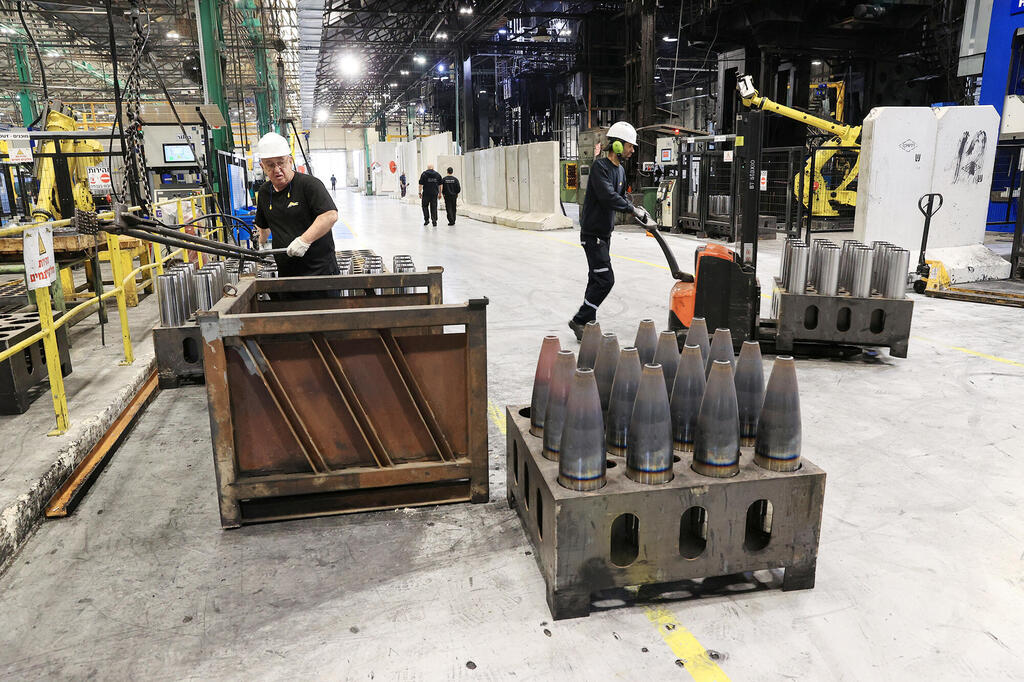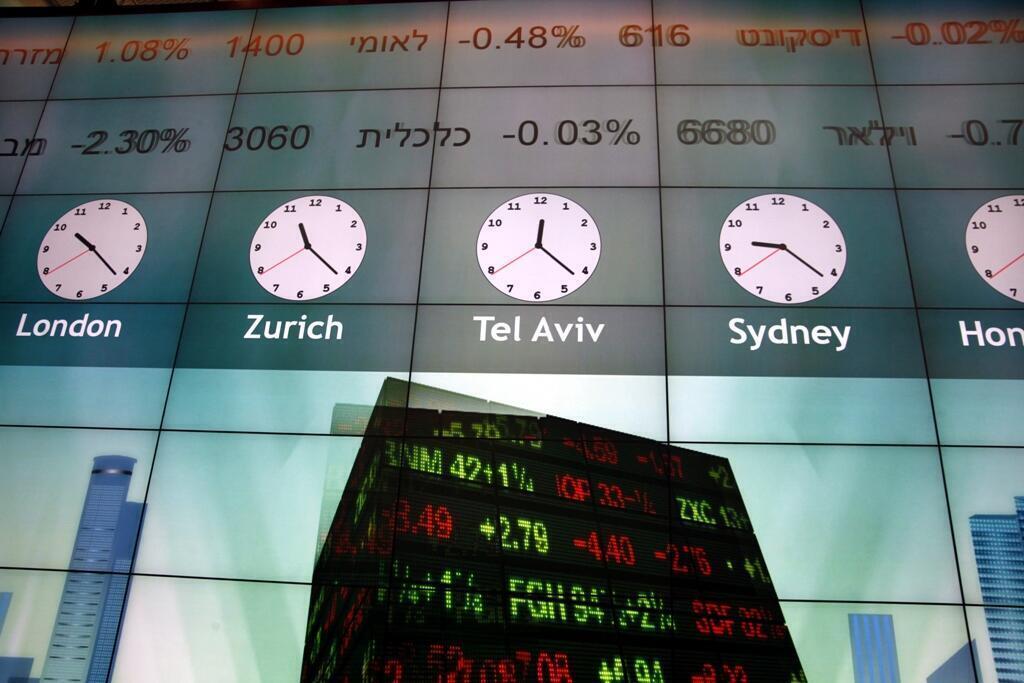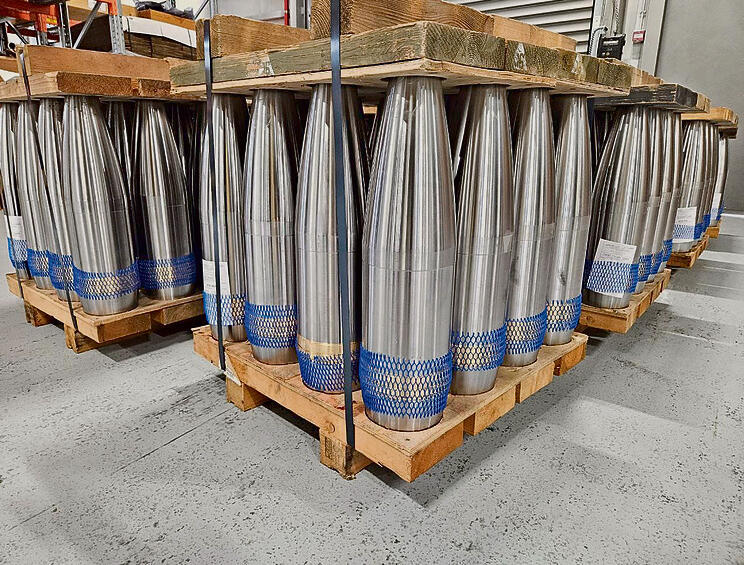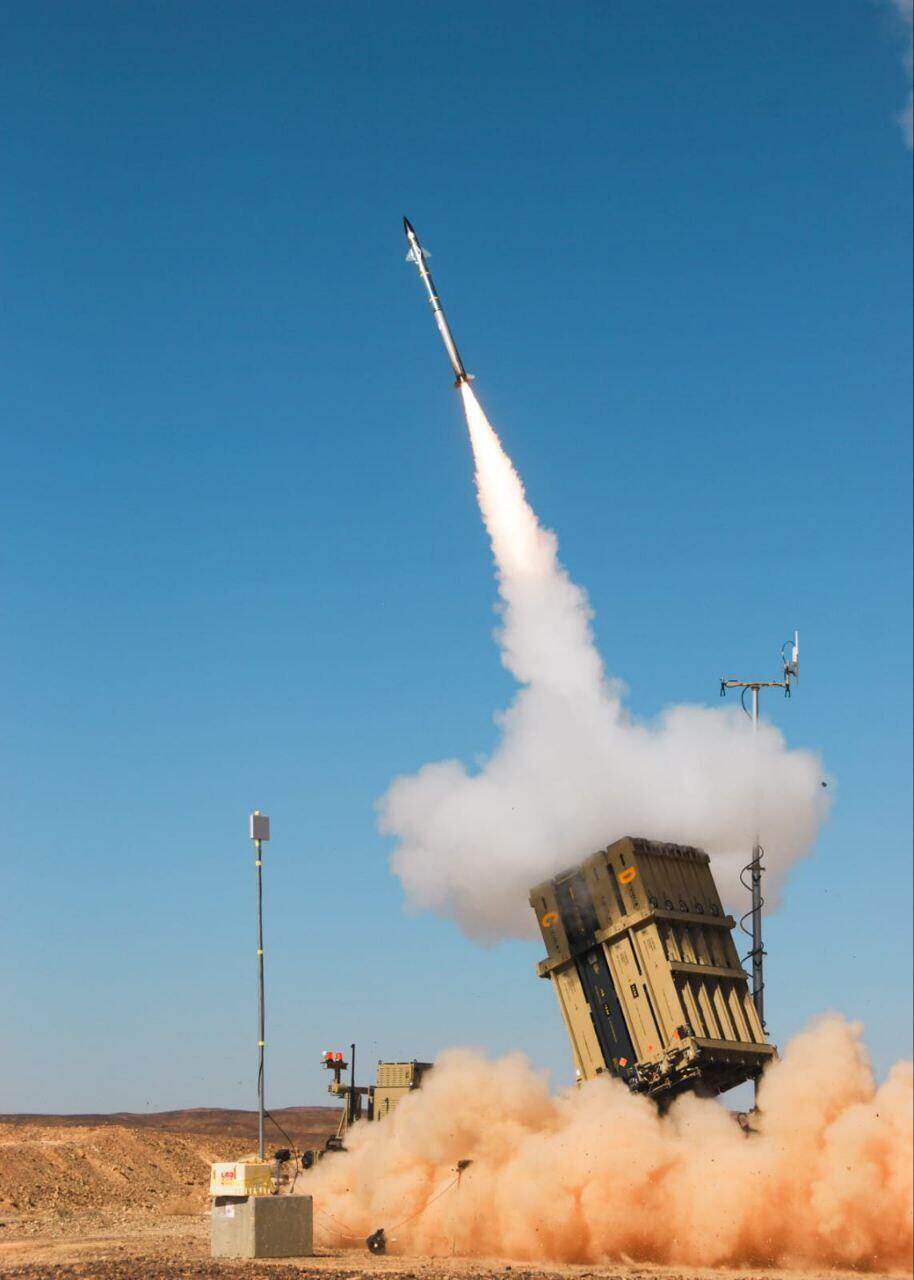Getting your Trinity Audio player ready...
Britain’s prime minister on the eve of World War II, Neville Chamberlain, erred in adopting a policy of appeasement toward Hitler and Nazi Germany, culminating in the infamous Munich Agreement. He was also wrong when he said, “In war, there are no winners; but all are losers.”
A quick glance at the stock performance of defense companies traded on the Tel Aviv Stock Exchange since the outbreak of the war, following the October 7, 2023, massacre, reveals a different story.
Shares of Israeli defense firms have surged an average of 120%, while the TA-125 Index has risen by 28% during the same period. While defense companies don’t celebrate or profit from the war in principle, war clearly creates winners in the economic sense.
The defense sector subgroup on the Tel Aviv Stock Exchange includes only 10 companies. However, at least six additional firms listed under other sectors derive a significant portion of their revenue from defense-related activities.
For instance, FMS Enterprises, which produces unidirectional fabric used in ballistic protection, is classified under "Fashion and Apparel," as if competing with Fox, Castro, Golf and other locals fashion brands. Similarly, Next Vision, which develops and markets cameras for drones and UAVs, is listed under "Electronics and Optics."
When grouping all 16 public defense companies and analyzing their market value, one cannot ignore the dominance of Elbit Systems. With a market capitalization nearing 40 billion shekels ($11.2), Elbit is worth three times the combined value of the other companies in the expanded defense group. Trailing far behind is Next Vision, in second place, with a respectable market value of 4 billion shekels—just one-tenth the size of Elbit Systems.
Six of the 16 defense companies traded on the Tel Aviv Stock Exchange are classified as “small corporations”—IMCO, Aerodrome, RSL Electronics, Aritech Industries, Solarom and Third Eye. These companies, with market caps under 300 million shekels ($84 million), benefit from regulatory exemptions, including semiannual reporting instead of quarterly. As a result, financial data for these firms is current only through June 30, 2024, despite being late in the year.
Three companies lead the '200% Club'
Since the war began, defense companies have delivered an average return that outpaced the TA-125 Index. Three stocks, in particular, have surged by over 200%, pulling the group’s average higher. Aritech Industries soared 283%, Merchavia Holdings (H. Mar) climbed 273% and IMCO rose 204%.
These companies all tripled their value since the war broke out, but their performance differs significantly. Aritech Industries, which develops, manufactures and markets fuses and military electronics, reported a 342% revenue jump in the first half of 2024, rising from 6.6 million shekels ($1.85 million) to 29.2 million shekels ($8.2 million). It also reversed a loss of 5.6 million shekels ($1.56 million) in H1 2023 to a profit of 5.8 million shekels ($1.62 million) this year.
By contrast, H. Mar and IMCO showed only modest single-digit revenue growth but significant gains in net profit.
Get the Ynetnews app on your smartphone: Google Play: https://bit.ly/4eJ37pE | Apple App Store: https://bit.ly/3ZL7iNv
H. Mar, specializing in communications, security and defense projects, grew revenue by just 4% between January and September 2024. However, its net profit surged 128%, rising from 10.2 million shekels ($2.856 million) to 23.4 million shekels ($6.55 million). This improvement is largely attributed to its overseas operations, including higher earnings from telecommunications and radio infrastructure projects in Central and South America, as well as a settlement agreement with a client in the Caribbean.
IMCO, a developer and manufacturer of electrical, mechanical and electromechanical products for military use, saw revenue increase by only 2.6% in H1 2024. Yet its net profit leaped from 1.9 million shekels ($532,000) in H1 2023 to 5.3 million shekels ($1.43 million) this year. IMCO also reported a sharp rise in its order backlog, from 299 million shekels ($83 million) on June 30, 2023, to 799 million shekels ($224 million) a year later and further to 815 million shekels ($228 million) by the time its semiannual report was published.
Early and late bloomers
Surprisingly, shares of Israel’s largest defense company, Elbit Systems, delivered the lowest return among its peers, rising just 15% since the war began. This underperformed major stock indexes, even though the company’s revenue grew by 13%, net profit climbed 25% and its order backlog expanded by 33% between January and September 2024.
The reason for Elbit’s underwhelming stock performance lies in its "early bloom." As a global company, Elbit’s shares began surging at the onset of the Russia-Ukraine war in February 2022. In the first month of the Ukraine conflict, Elbit’s stock soared 40%, and since then, it has risen 67%, far outperforming the TA-125 Index, which gained 19% during the same period.
In contrast to Elbit's early gains, some companies are "late bloomers," taking longer to see growth. Two prominent examples are Aerodrome and RSL Electronics, both of which saw their revenues drop by over 40% in the first half of 2024 compared to the same period in 2023.
Aerodrome, which specializes in gathering, analyzing and processing data using UAVs to produce AI-powered insights, reported a 49% drop in revenue in H1 2024. This decline was driven by a strategic shift from selling services to products and systems, the cancellation of a deal with a foreign client and delays in drone deliveries for another international customer.
However, in October 2024, Aerodrome secured a major government contract worth 137 million shekels ($38.4 million) to supply various types of UAVs and related products. Following the announcement, Aerodrome’s stock surged 182% within less than a month before correcting by 36%. Despite the revenue decline, the stock has risen 89% since the war began, buoyed by the contract win.
RSL Electronics, which develops and markets advanced electronics for aviation and artillery, experienced a 42% revenue decline in H1 2024, falling from 11.7 million shekels ($3.28 million) to 6.8 million shekels ($1.9 million). The drop was mainly due to lower sales of barrel velocity radar systems and control systems.
However, RSL’s order backlog tells a different story, surging from 17.4 million shekels ($4.9 million) on June 30, 2023, to 44.5 million shekels ($12.5 million) by June 30, 2024. This significant growth suggests the company could see a turnaround in its financial performance in the near future.
Awaiting the defense budget boom
While investors do care about current financial results, it’s clear they are more focused on future outcomes, largely tied to each defense company’s order backlog, deals and tenders won. Israel’s defense budget has soared following the war, reflecting the understanding that in a volatile region, a “small and smart army” may not always be the smartest solution.
Globally, defense spending is also on the rise, particularly among NATO member states, driven by the ongoing Russia-Ukraine war. This trend positions defense companies to benefit significantly from increased military budgets.
Most Israeli public defense companies are reporting strong growth in their order backlogs, fueling investor expectations for revenue growth in the near future.
“We will definitely see the effects of the war, but those effects will become evident in 2025-2026,” said Matan Rabin, CEO of Solarom, a developer and manufacturer of electronic and electromechanical systems and products for the defense sector, during an interview on Noam Madar’s podcast Beating the Index.
According to Rabin, the expectation is that defense budgets will begin to be released over the coming years, boosting the business performance of defense companies.
If defense budgets continue to grow in the years ahead, this trend is likely to translate into improved financial results and an ongoing rally in defense stocks. However, in a scenario of reduced security tensions and cuts in defense spending, these companies could be the first to suffer, becoming the so-called “victims of peace.”





